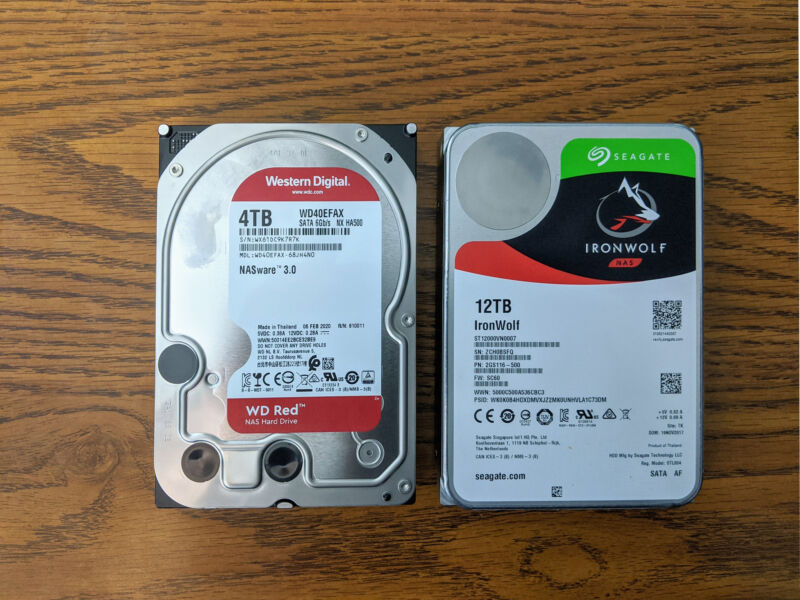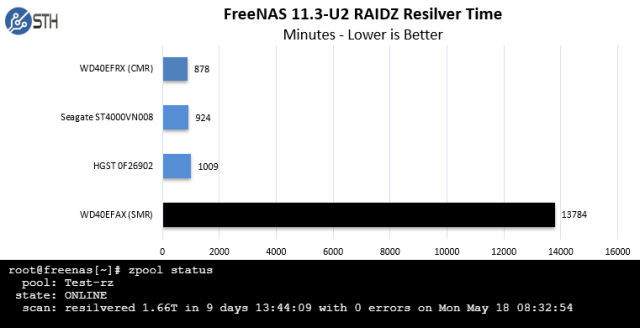We put Western Digital’s dreaded SMR Red drive to the test

Enlarge / Western Digital's EFAX Red-an SMR disk-squares off against a Seagate Ironwolf in today's testing. (credit: Jim Salter)
Western Digital has been receiving a storm of bad press-and even lawsuits-concerning their attempt to sneak SMR disk technology into their "Red" line of NAS disks. To get a better handle on the situation, Ars purchased a Western Digital 4TB Red EFAX model SMR drive and put it to the test ourselves.

Although Western Digital's 4TB SMR disk performed adequately in Servethehome's light duty tests, it performed miserably when they used it to replace a disk in a degraded four-disk RAIDz1 vdev. (credit: ServeTheHome)
Recently, the well-known tech enthusiast site Servethehome tested one of the SMR-based 4TB Red disks with ZFS and found it sorely lacking. The disk performed adequately-if underwhelmingly-in generic performance tests. But when Servethehome used it to replace a disk in a degraded RAIDz1 vdev, it required more than nine days to complete the operation-when all competing NAS drives performed the same task in around sixteen hours.
This has rightfully raised questions as to what Western Digital was thinking when it tried to use SMR technology in NAS drives at all, let alone trying to sneak it into the market. Had Western Digital even tested the disks at all? But as valuable as Servethehome's ZFS tests were, they ignored the most common use case of this class of drive-consumer and small business NAS devices, such as Synology's DS1819+ or Netgear's ReadyNAS RN628X00. Those all use Linux kernel RAID (mdraid) to manage their arrays.
Read 19 remaining paragraphs | Comments